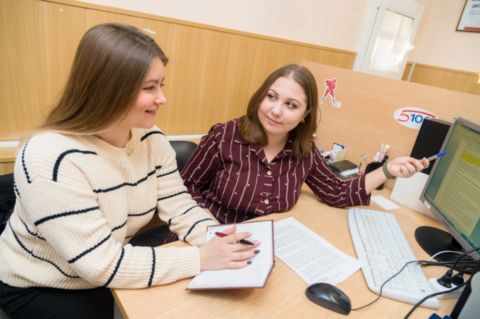2nd-year Master’s degree student of the Department of Journalism, Advertising and Public Relations of the Institute of Media, Social Sciences and Humanities YuliaVoznesenskaya participated in the Lomonosov conference for students, postgraduates and young scientists within the framework of the Lomonosov 2020 International Scientific Forum, that took place in Lomonosov Moscow State University.
The 17th Lomonosov 2020 international conference is one of the major events for scientific youth in the world. The main goal of the conference is to develop creativity of students, postgraduates and young scientists,engage them into solving burning problems of modern science, and to maintain and accelerate the common international scientific and educational space.
The participants discussed topical issues and matters of science in such fields as biology, world politics, fundamental materials science, journalism and more.
In the field of Journalism (the Periodical Press subsection) Master’s degree student of the SUSU Department of Journalism, Advertising and Public Relations YuliaVoznesenskaya present a report on International Topics in Russian Media in the Context of the COVID-19 Pandemic.
“In the report, the student analysed news materials on the coronavirus pandemic in the world, published on the news portals of Lenta.ru, Interfax, RIA-Novosti and Vedomosti from the March till May2020 time period,”said academic advisor of the work, Candidate of Sciences (Philology), Associate Professor of the Department of Journalism, Advertising and Public Relations АnnaKrasavina. “She identified the genre-thematic and discursive features of journalistic materials, as well as functional transformations of journalistic tasks in the context of pandemic and successfully defended her hypothesis”.
The conference was held in 42 sections and more than 400 subsections.Due to the coronavirus pandemic, the conference was organised in the online format, and that fact only emphasized the importance of the scientific research of the SUSU Master's degree student.

“We analysed a number of journalistic materials created during the period of the “first wave” of the coronavirus,” said YuliaVoznesenskaya. “We identified lexical features in the texts and made a discourse analysis. And we have come to quite interesting conclusions that the media can significantly influence the mood of people in times of crisis. Now we will be working further to compare the media texts for all months of the pandemic and elaborate recommendations for correcting people's media behaviour.”




